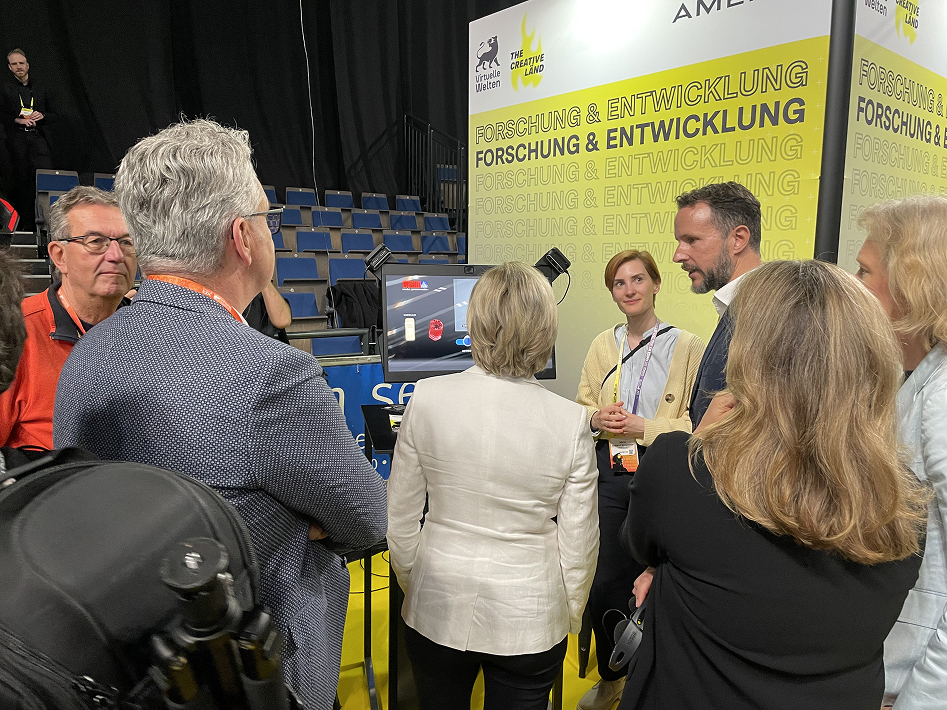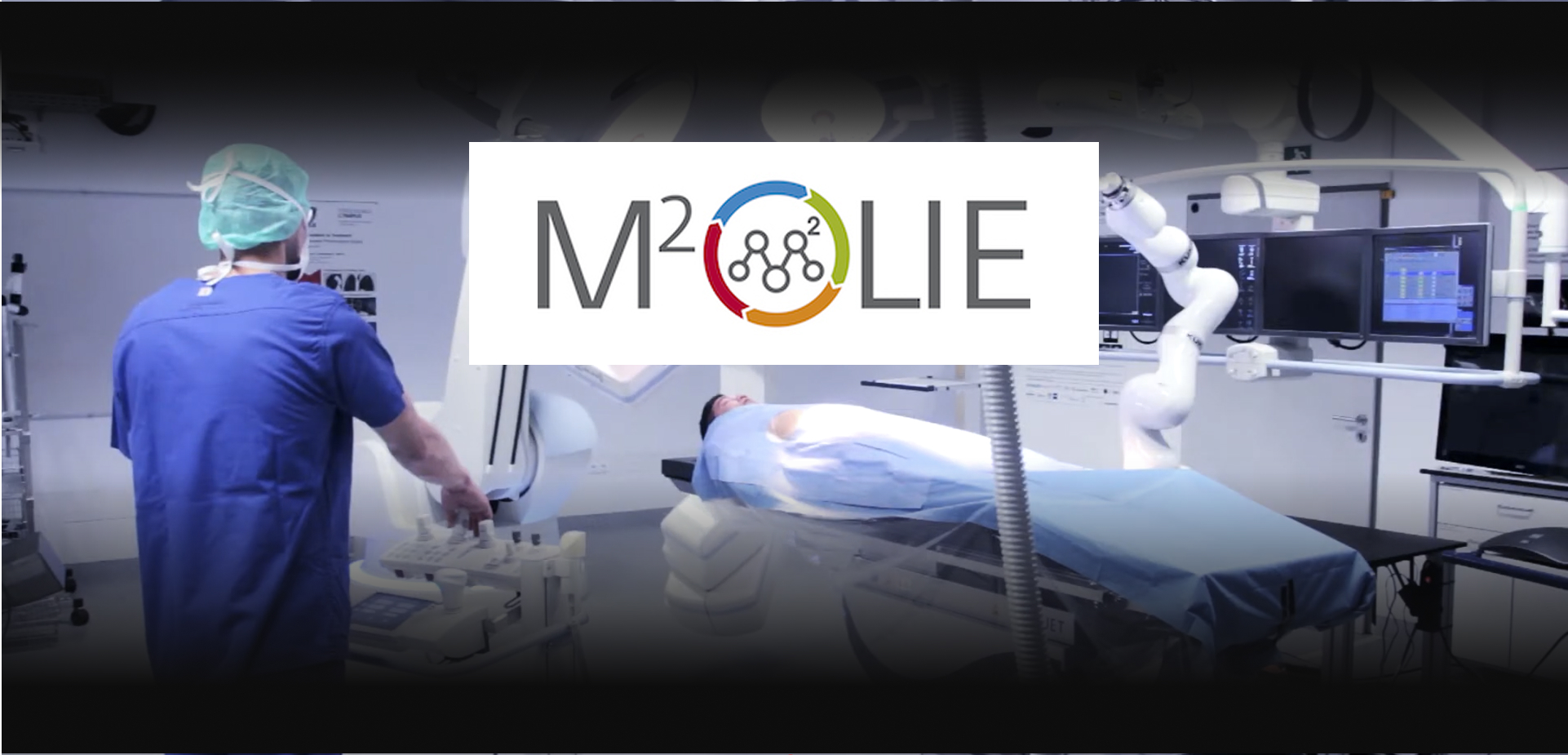Digital sovereignty begins at the interface. The interface is a geopolitical factor. Global platforms such as Google, Apple, Meta and Amazon have monopolised not only data flows, but also our interaction with the digital world.
.png)
SVP Corporate Development
The interface between humans and the digital world thus becomes a place of power loss. At the same time, this is an opportunity for Europe to regain digital self-determination.
In a world where artificial intelligence (AI) is becoming the dominant infrastructure, control over the interface determines who has access to AI, who controls data and who sets standards. It thus becomes a political lever. Europe must not cede this key geopolitical position to global platforms. It needs its own sovereign interfaces – designed according to European values such as transparency, security, data protection and inclusion. The AI Act is a step in this direction, but it must be accompanied by concrete products, solutions and investments [6].
1. Interfaces are infrastructure and therefore power
Interfaces have long been more than mere user interfaces. They filter information, control processes and shape decisions. Whoever controls the interface controls not only what users do, but also how they do it and under what conditions.
The history of digital technologies shows how power shifts through technology: the computer mouse changed how we interact with machines, the touchpad complemented it, and the smartphone touchscreen fundamentally changed it. It enabled the success of the mobile internet and the app store, which created new dependencies. Today, voice assistants, AR glasses and AI agents are taking on this role – as gatekeepers with tangible consequences for data protection, competition and democratic control.
Interfaces are not neutral tools. They are infrastructural levers that can be used to shift and cement power relations. Those who design them shape the rules of our digital society.
2. Big Tech has occupied the interface and Europe is a spectator
The big technology companies have expanded their power over decades. They control not only the physical devices, but also the operating systems, the interaction logic and the underlying infrastructure. This applies from the user interface to the business model.
The importance of the interface is not changing in the age of AI. Leading developers in this field are aware of this. A recent example is OpenAI's acquisition of io, the project of Apple's former chief designer Jony Ive, for 6.5 billion US dollars [2]. The aim is to create a new AI device that currently has no users, no market launch date and no proven business model. Nevertheless, the direction is clear: whoever controls the interface of the AI world will secure the platform power of the future.
Europe is in danger of missing out on this development and remaining a mere consumer. Standards, devices and cloud systems are being defined elsewhere. While the US is investing strategically, Europe's response has been weak so far [7]. The EU's InvestAI programme, for example, currently amounts to around €256 million. The funding of the French company Mistral AI shows that Europe is beginning to respond [3]. However, the structural imbalance remains obvious.
If Europe wants to succeed in this race, regulatory frameworks alone are not enough. It needs capital, entrepreneurial courage and a strategic industrial policy that not only demands technological independence, but also secures it financially.
3. MAVERICKAI: European technology with attitude
MAVERICKAI represents a new approach to AI. At its core is a set of European values based on autonomy, data protection and transparency. The device processes information directly at the user's location – where it is generated. It does not require a cloud connection for most tasks and meets the requirements of the GDPR. Operation is based on natural forms of interaction, using voice, gestures and touch. What looks like a laptop is Europe's first interactive AI system that combines technical innovation with political attitude. It creates the basis for digital self-determination.
Access to key digital technologies is currently in the hands of a few global corporations. Google, Apple, Meta, Amazon and Microsoft define the standards, control the infrastructure and determine the conditions under which users can participate. Those who do not submit to these rules often pay with the loss of their data sovereignty.
The consequences are serious. Innovations that contradict the business models of these platforms are systematically slowed down. This is particularly evident in the field of generative AI. The major providers try to control every application via their own infrastructure. This is profitable for the companies. For open societies, it is risky.
At the same time, dependencies are growing that are becoming increasingly difficult to reverse. Many organisations rely on proprietary cloud solutions, opaque algorithms and data centres whose operation consumes large amounts of energy and resources. This not only leads to a loss of control, but also to a loss of creative freedom.
MAVERICKAI deliberately sets a counterpoint. It offers a decentralised alternative that takes Europe's claim to independent technological creativity seriously. Control remains with the user, and data stays local.
4. On-device AI: A European response to the dominance of the cloud
With its decentralised architecture, MAVERICKAI is deliberately pursuing a different path to the centralised infrastructures of the major platforms. On-device AI refers to an architecture in which data is processed directly on the end device – without being transferred to central cloud servers and without cloud dependency.
This architecture offers clear advantages. It reduces latency, improves data protection, increases reliability and reduces energy and resource consumption [4]. Above all, however, it also works where cloud access is unavailable or deliberately avoided. On-device AI is thus much more than a technical approach. It represents a paradigm shift in Europe's digital architecture.
The principle is simple: data is no longer collected and evaluated centrally. It remains where it is generated – with people, in devices, in applications. This makes it possible to use generative AI even in sensitive areas such as healthcare, public administration and critical infrastructure.
The advantages are obvious. Risks are minimised, trust is strengthened, and loss of control is avoided. These are crucial prerequisites for the social acceptance of new technologies. The European Union's AI Act makes it clear that applications in high-risk areas must meet specific requirements. These include transparency, explainability and data protection. On-device AI naturally fulfils these requirements. It enables the legal framework to be implemented without hindering innovation [6].
This architecture also opens up new economic prospects [5]. Companies do not need to take out expensive cloud subscriptions or purchase external computing power. They can operate with their own hardware, scale their systems faster and act more independently. A new ecosystem is emerging that is based on devices – not platforms. With MAVERICKAI, Europe can show that technological sovereignty is not just a demand, but a claim to design.
5. Utilising scope for action: enabling innovation rather than hindering it
The AI Act is more than just a set of rules. It is a political signal for Europe to pursue its own path in AI development. However, regulation alone is not sufficient. To achieve technological sovereignty, one must also be able to shape the future. For Europe to remain competitive globally, it needs a strategic combination of clear rules, reliable implementation and targeted innovation support.
Firstly, regulation must be practical and enforceable. Start-ups and small and medium-sized enterprises must not be held back by bureaucratic hurdles. What is needed are clear guidelines, uniform interpretations and simple procedures. Regulatory test environments – known as ‘regulatory sandboxes’ – can help to test new applications under real-life conditions.
Secondly, Europe must invest in its own digital infrastructure. This includes data centres, high-performance computers and open data rooms. At the same time, more skilled workers are needed who can work with these technologies. Training programmes, targeted immigration and visa facilitation for AI talent are key building blocks.
Thirdly, the digital single market for AI must be completed. National deviations in the implementation of the AI Act jeopardise the competitiveness of European providers. Only uniform standards create predictability, investment security and access to a functioning European market.
Fourthly, Europe should confidently bring its ethical approach to the international debate. Combining technological excellence with social responsibility is not a disadvantage, but a unique selling point. Openness and connectivity are the basis for global relevance.
A look at global strategies reveals the alternatives. The US is focusing on market-oriented self-regulation. China is pursuing a state-controlled path to innovation. Europe is seeking a third way: clear in its stance, open in its cooperation.
Those who shape the interface between humans and AI not only influence technology – they influence our society. Europe's digital sovereignty is decided where humans come into contact with machines.
The AI Act is a start. It will only be truly effective when values such as transparency, data protection and security are translated into functioning products. Trust is not created through control, but through traceability. And innovative strength is not created through isolation, but through connectivity.
It is time for Europe to take control of the design of its digital infrastructures. With the courage to develop, with responsibility in implementation and with the determination not only to set rules, but to build the future.
Sources cited with links
- Tagesspiegel Background (26.05.2025)
„Digitale Souveränität: Wie wird Europa unabhängiger von Big Tech?“
- Reuters (22.05.2025)
„OpenAI buys iPhone designer Ive’s hardware startup“
https://www.reuters.com/business/openai-acquire-jony-ives-hardware-startup-io-products-2025-05-21/
(Anmerkung: Titel leicht angepasst zur besseren Auffindbarkeit)
- Reuters (13.06.2023)
„France’s Mistral AI raises 105 million euros“
- IBM – What is Edge AI?
- MIT News – Adam Zewe (16.11.2023)
„Technique enables AI on edge devices to keep learning over time“
https://news.mit.edu/2023/technique-enables-ai-edge-devices-keep-learning-over-time
- EU-Parlament (08.06.2023 / akt. 2025)
„Artificial Intelligence Act: EU’s landmark AI regulation“
- CEPA – Chavez (13.02.2025)
„France Pursues an AI ‘Third Way’“ – Center for European Policy Analysis
AMERIA is a leading European deep-tech company based in Heidelberg, is shaping the future of human-machine interaction through groundbreaking digital technologies. With MAVERICKAI, AMERIA is developing the first true AI device built on a laptop platform – a combination of smart software, a revolutionary AI assistant, and a sleek form factor.
Recent news and press articles
Contact our press team.
AMERIA is a leading European deep-tech company based in Heidelberg, is shaping the future of human-machine interaction through groundbreaking digital technologies. With MAVERICKAI, AMERIA is developing the first true AI device built on a laptop platform – a combination of smart software, a revolutionary AI assistant, and a sleek form factor.




.jpg)




